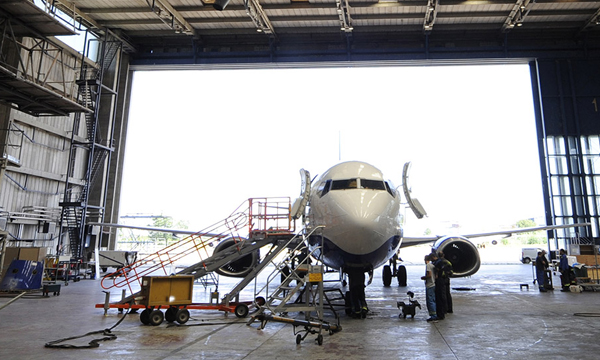Leased aircraft and MRO: good practice |
| Romain Guillot |
|
|
12 DEC 2018 | 715 words
|
 |
© GECAS |
|
|
|
While the worldwide commercial aircraft fleet continues to expand, so, of course, does the fleet operated under leasing contracts. Lessors now have over 10 000 planes on their portfolios when they only had 4000 around ten years ago, and the trend has significantly taken off, especially in Asia.
The number of "redeliveries" is sure to continue to grow and lessors are continuing to strengthen their influence on maintenance actors. A conference and debate featuring GECAS (GE Capital Aviation Services), BOC Aviation and different operators and maintenance actors was organised on this topic in Singapore last month on the fringe of the Commercial Aviation Services Asia-Pacific event. We also need to remember that Singapore has gradually become the main leasing hub in Asia-Pacific due to its financial centre, its MRO technical expertise and its fiscal environment.
As Liam Creaven, GECAS Senior VP Technical for the Asia & Greater China region explained, numerous factors influence the residual value of a commercial aircraft, starting with the aircraft's documentation "and this isn't important only at the end of the contractual period", he stated, noting at the same time that the biggest leasing companies in the world have joined forces within an association that also includes aircraft and engine manufacturers, the AWG (Aviation Working Group) in order to influence the different competent authorities, for example by supporting the development of aircraft maintenance data digitisation, such as the ATA e-Business Program initiative. Leasing companies dream of a proper status recognised by the ICAO, with, for example, standardisation of practices during plane transfer operations. Of course, Liam Creaven talked about the things which are holding back certain, countries from accepting documentation in digital format, but he feels that the reticence felt by these authorities will disappear over the coming years.
Chris Gruener, EVP Head of Technical at BOC Aviation reminded everyone that unlike airlines, leasing companies generally need to take account of the whole lifecycle of the aircraft and of course keep their planes in the most standardised conditions possible so that they can change operator easily. "Generally speaking, we don't like modifications on our aircraft", he said, quoting the examples of PMA parts or interversions of engines between aircraft. He also reminded the delegates that relatively common modifications such as adding a radome for satellite connectivity are "significant" and "intrusive" modifications.
Chris Gruener also highlighted the fact that aircraft must obviously comply with EASA/FAA standards during the transition period, whatever the operator's nationality. He also noted that keeping up with documentation is a major challenge in China while many planes will soon be required to leave the country, with language-related difficulties or problems following aircraft after multiple Chinese airline mergers.
Liam Creaven and Chris Gruener both agreed on the fact that if operators are required to refer to their leasing contracts before any modifications, certain clauses must also be shared more with operators' technical departments and MROs to prevent any surprises when the lease period ends.
BOC Aviation's technical director also highlighted the issues that have developed with the arrival of new generation aircraft like the 737 MAX, A320neo and 787, planes which are now covered (70%) by FHA (Flight Hours Agreement) type contracts and which may cause operators difficulties at the end of the lease period. He also explained that spreading out maintenance intervals as proposed by aircraft manufacturers may also have a major impact on lessors' timetables.
But the main challenge for operators and maintenance companies obviously remains the end of lease process. Liam Creaven was very clear on this subject: "GECAS is asking its customers to anticipate 18 months before the end of the contractual period. This enables operators to save money and avoid surprises", he explained. In particular, he mentioned the fact that certain items of cabin parts, which are very expensive and made of plastic, may have very long lead-times (often up to 6 months), which may have a serious impact on the redelivery process.
He also listed the under-estimation of conformity return time by the MRO company, the lack of capacity at its facilities and approval, experience and other problems. "In trying to optimise revenue by making aircraft fly for a little longer we ultimately expose ourselves to the risk of having to pay penalties and extra weeks' leasing... It's a very poor calculation", he indicated.
|
|
 |
Romain Guillot
Chief editor
Cofounder of Journal de l'Aviation and Alertavia
|
|
| |
They made this section possible |
|
|
|
|
|
|
|
|
|
|
|
|
|
|
|
|
Top stories |
|
|
|
|
|
Top stories
|